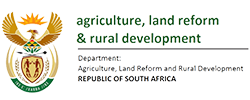Commentary: Potential implications of Brexit on South Africa’s agricultural exports
By Mr Lucius Phaleng (lphaleng@namc.co.za)
Introduction
It was in June 2016 when the UK decided to leave the EU and this followed a public referendum during which members of parliament voted in favour of leaving the EU. UK was the largest economy amongst the 28 EU member states in terms of its contribution to the EU economy and a major importer of a larger share of agricultural products destined for Europe. Brexit raises serious questions and uncertainties about the future shape and conditions of the EU trade agreement with trading partners. The rationale behind the trading partners’ concerns is that a larger share of its agricultural exports might struggle to gain access into the UK market due to the cut of ties with the EU. On the other hand, the remaining 27 EU members will continue to have the existing rights and obligations and market access. The EU negotiated the terms of members seeking to leave the EU, and this has resulted in the development of Article 50, which indicates the plan for any country that wishes or intends to leave the EU. Article 50 states that “any member state wishing to withdraw from EU member state should notify the European Council of its intention. In the light of the guidelines provided by the European Council, the union shall negotiate and conclude an agreement with that state, setting out the arrangements for its withdrawal.” According to Article 50, Britain was given until March 2019 (two years) to negotiate its arrangement and trade conditions and also to reconsider its decision, and after that period its membership was supposed to automatically lapse. However, the official lapse period was extended several times due to ongoing internal negotiations in Britain.
Potential implications of Brexit
Currently, the SADC-EU EPA governs South Africa’s trade with the EU, including the UK. The agreement treats South Africa to several economic developments through trade liberalisation, encouraging maximised agricultural production alongside the EU single market. The UK exists as one of the largest consumers of South Africa’s agricultural exports destined for Europe. As a result of Brexit, the arrangements between the EU and UK will be evaluated under “hard” and “soft” Brexit trade conditions, with potential implications for South Africa’s agricultural exports post-Brexit. The conditions indicated might result in different implications for how trade relations between the UK and the EU could reform and thereby influence South Africa and also the agricultural sector in this case.
“Hard Brexit conditions”: There is much uncertainty but negative implications are anticipated for South Africa’s agricultural trade with the UK because they mean that Britain will give up its membership in the EU’s single market. Hard Brexit will mean that 7.51 % of South Africa’s agricultural exports destined for the UK will face imposed duties or MFN duties, thus affecting South Africa’s agricultural exports negatively if UK finds itself outside of the customs union – meaning that South African agricultural exports to the British market will suddenly become more expensive and thus reduce demand.
“Soft Brexit conditions”: These conditions mean that the UK will remain close to the EU by retaining some form of the bloc’s single market. With this condition, there is minimum disruption because free movement of agricultural products will be maintained, and South Africa’s agricultural exports will continue to enjoy access to UK markets on a duty-free basis under SADC-EU EPA. However, this will also mean that the UK would be unable to engage in or formulate its own trade deal with South Africa.
Way forward
Noteworthy is the positive trade balance that South Africa continues to enjoy in its trade with the UK, which earns the country foreign currency and contributes to reducing the country’s current account deficit, according to Rob Davies, the Minister of Trade and Industry in South Africa at the time of writing this article. As the UK is in the process of exiting the EU, South Africa has welcomed the UK’s intention to avoid any disruption of trade, and both parties have agreed to assess options for bilateral technical co-operation in the areas of trade and investment promotion. Additionally, the parties have agreed to work together to promote investments in priority sectors to advance sustainable economic development (DTI, 2019). It is important for both countries to realise their importance, especially in the area of agricultural trade. The conditions of the bilateral trade agreement should depend on the outcome or decision regarding Brexit. Hard Brexit will mean that the UK must negotiate new trade agreements with its trading partners, and as such, there has been some progress on the South African side.


